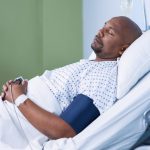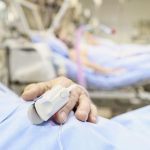
If you’re a Black man, your risk of getting prostate cancer is 75% higher than it is for a white man, and it’s more than twice as deadly. Now, research is helping to bring genetic risks for people of various racial and ethnic groups into focus. In doing so, dozens more risk factors that could better help pinpoint the odds of developing prostate cancer have been uncovered. And that could potentially lead to better screening protocols and earlier detection for men of all races, experts said. “The potential utility of this is that it can be used to define men who are at elevated risk of developing prostate cancer,” said lead author Christopher Haiman, professor of preventive medicine at Keck School of Medicine at the University of Southern California (USC) in Los Angeles. “This is knowledge that men could find out, I hate to say it, but at birth,” he added. More likely, men would get this information later in life, Haiman said, but clinicians could use it to determine when blood tests to screen for prostate cancer should begin and how often screening should occur. Researchers from the USC Center for Genetic Epidemiology in Los Angeles and the Institute of Cancer Research in London led the study. They noted that past prostate cancer studies included an overrepresentation of white men, making it more difficult… read on > read on >












